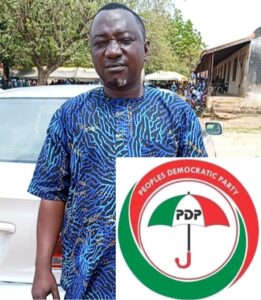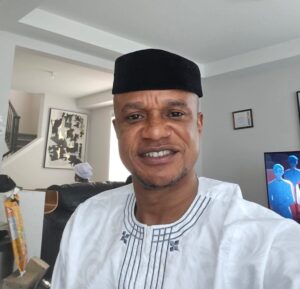The World Bank has projected that Nigeria’s economy will grow moderately in the coming years, but it warns that this growth will not be enough to reduce poverty or improve most citizens’ lives.

The global lender disclosed this in its latest Africa’s Pulse report released in April. The bank said Nigeria’s economy is expected to grow by 3.6 per cent in 2025, following an estimated growth of 3.4 per cent in 2024. By 2026 and 2027, growth may slightly increase by 3.8 per cent.
The growth is expected to come mainly from service, particularly finance, information and communication technology, and transportation. There is also a gradual recovery in oil production, which the bank says is moving closer to Nigeria’s OPEC+ quota.
Private investment and consumer spending are also expected to improve. World Bank attributes this to falling inflation and a stabilising business environment.
ALSO READ: REPORT: Only Five Nigerian States Can Survive Without Federal Allocation FAAC
MODERATE GROWTH NOT ENOUGH
Despite reforms, Nigeria is one of the countries dragging down its region’s performance. Alongside Angola and South Africa, Nigeria’s slow recovery is holding back Sub-Saharan Africa’s overall growth.
When these three countries are excluded, the rest of the region is projected to grow at 4.6 per cent in 2025. With them included, regional growth drops to 3.5 per cent.
The bank projects that the number of people living in poverty in Sub-Saharan Africa will increase from 576 million in 2025 to 589 million in 2027. Nigeria, which already accounts for 19 per cent of poor people in the region, is expected to see further increases.
ALSO READ:
FG to Relaunch School Feeding Programme in May, Targeting 10 Million Pupils
Atiku Reacts to Mass Defection from PDP to APC, Issues Warning
Tinubu Gives Senate President Akpabio Important Assignment
INEC Eyes PVC-Free Voting, But Trust Issues Could Block the Plan
The bank says this is partly due to the region’s low capacity to convert economic growth into poverty reduction. In Sub-Saharan Africa, a 1 per cent increase in GDP per capita only leads to a 1 per cent drop in poverty. In the rest of the world, it leads to a 2.5 per cent drop. This means the current rate of economic growth in Nigeria is not strong enough to improve the quality of life.
Other sources corroborate the World Bank’s findings with fairly different metrics. In 2024, for instance, an estimated 26.5 million Nigerians faced food insecurity.
At least 26 million people experienced food crises, and about one million people were already facing emergency levels of hunger. That number is expected to rise to seven million by the end of 2025, according to the United Nations World Food Programme.

FRAGILITY AND INSECURITY ROBBING NIGERIA
The World Bank identifies Nigeria as a fragile, resource-rich country. It warns that such countries are recovering more slowly than others. The Africa Pulse Report cited Nigeria alongside DR Congo as examples of resource-rich yet very fragile countries and alluded to historical data as basis for its increased poverty projections.
Insecurity remains a major challenge. For instance, FIJ reported how over 2.2 million people have been displaced and at least 542 killed between 2019 and 2025 due to pastoral violence.
In April alone, FIJ reported that armed attackers killed at least 20 civilians across several communities in Bokkos Local Government Area of Plateau State. The attacks took place between March 27 and early April. In Ruwi, a village in the area, 11 women were killed in one attack.

EFFECTS OF INFLATION NEVER GO AWAY
The World Bank also noted that despite signs that the inflation rate may moderate itself in 2025, the lingering effects of inflation spikes never go away for poor people.
High inflation continues to affect the poor. In June, Nigeria recorded its highest inflation rate in recent history. The country witnessed 34.2 per cent headline inflation at one point and food inflation rose to 40.9 per cent year-on-year.
Although inflation is expected to ease —dropping to 22.1 per cent in 2025 and 18.5 per cent in 2026 — poor households may continue to grapple with the aftershocks of sudden increases in spending.
NOT EVERYONE IS INCLUDED
Finally, the World Bank identifies inequality as a reason why the effects of economic growth are not felt by everyone. According to the bank, the effects of growth are weakened by high inequality and exclusion.
Many Nigerians are unable to access opportunities because of poor infrastructure, insecurity and limited access to credit or skills development. The result is that even when the economy grows, millions remain left behind.

In a fairly similar development, the International Monetary Fund has cut down its expectations of the Nigerian economy in the 2025 fiscal year. In its new World Economic Outlook Report, the financial institution said it trimmed the expected GDP growth from 3.2 per cent to 3.0 per cent due to lower oil prices.
ALSO READ: Nigeria Not Happier Than 104 Countries in the World— Report
As recently as Friday, crude oil prices fell by $10 to around $64 per barrel. This drop is significant for Nigeria, whose 2025 budget is based on a benchmark oil price of $75 per barrel and a production target of 2.06 million barrels per day.
Credit: FIJ

Get real-time News Updates on Our WHATSAPP channel:








